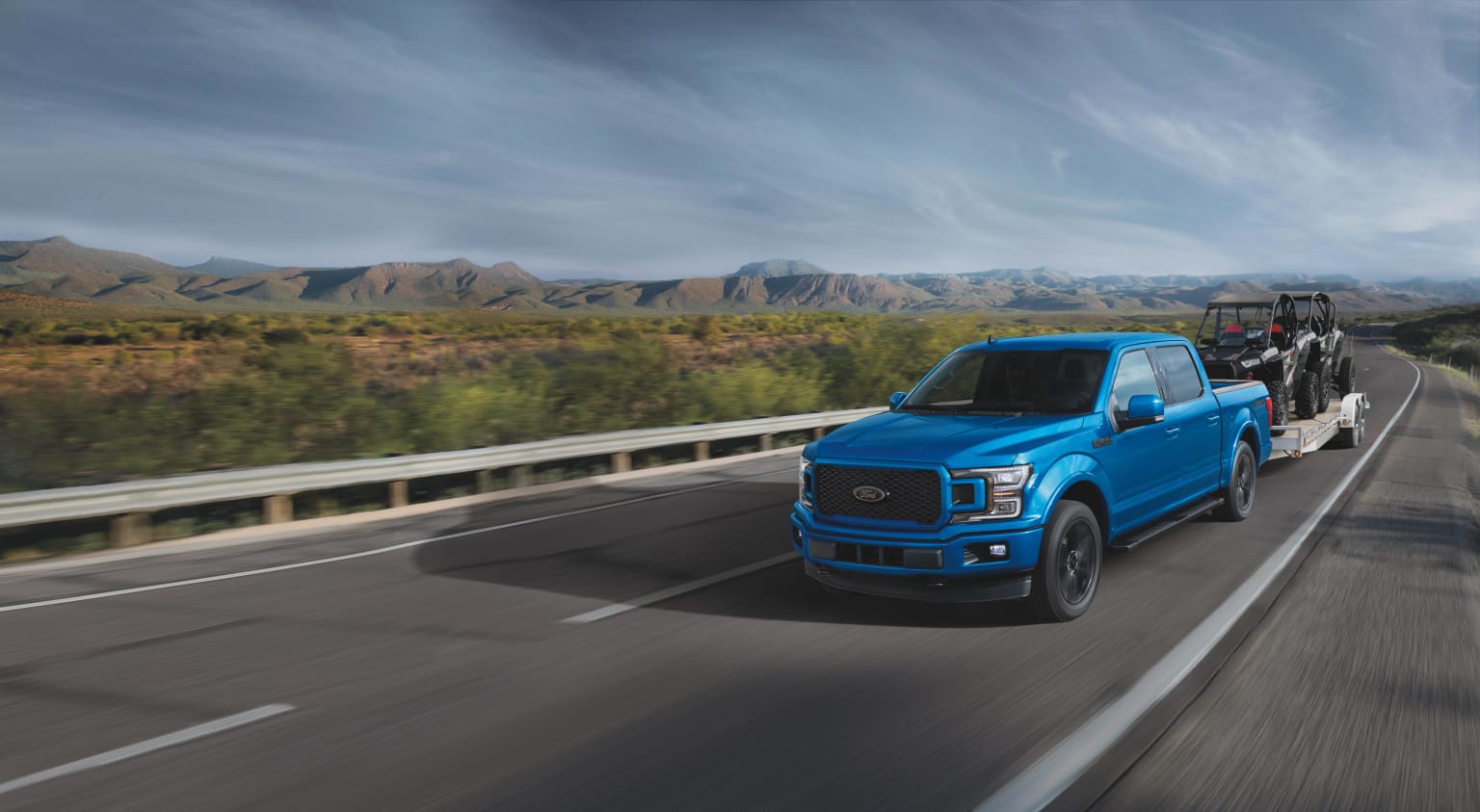
Common Ford F-150 Questions
We've take our most frequently received Ford questions and provided you what you need to know. Today we answer, questions about America's Best Selling Truck, The F-150. Contact J.C. Lewis Ford to see each model and have a personal Ford-F-150 expert assigned to answer all of your lineup questions - 912.210.5676.
What was the first year for the Ford F-150?
How many seats are in an F-150?
How much does an F-150 weigh?
What are the best tires for Ford F-150?
F-150, Ford’s best-selling vehicle, has been a top choice for truckers since its first year of 1948, and for good reason: besides its good looks, it can tow and haul big loads and can take on the most punishing off-road surfaces. Inside, it provides plenty of storage space and seating for 6 (5 for the Raptor).
The Ford F-150 has the only high strength, military-grade aluminum-alloy body and high strength steel frame in its class. A heat-treating process is used to harden the aluminum alloy, increasing thickness to achieve greater strength without increasing weight; the 2020 Ford F-150 has a curb weight as low as 4,069 lbs. The lighter aluminum alloy allows for a higher power-to-weight ratio plus best-in-class payload and up to 13,200 lbs. of available towing.
In order to maximize capability out of your F-150, it’s important to select the best tires for your trim, terrain, driving style and climate.
For most F-150 owners, highway and touring tires are the best choice. They’re the most comfortable and quiet, especially at highway speeds, and the best of them are very responsive and have high grip and traction. They’ll give you short braking distances on both dry and wet roads, and they have excellent resistance to hydroplaning. In addition, these tires are the most durable type, lasting almost twice as long as other types. Often times, highway and touring tires are cheaper than other types, further adding to their cost effectiveness.
As the name implies, they’re primarily for driving on the road, but they’re still sufficient for gravel roads and some other lighter terrain. When choosing between highway and touring tires, keep in mind that highway tires can carry much more weight, but touring tires are lighter and offer a generally better driving experience when your truck isn’t loaded.
If your F-150 is a V8 or V6 EcoBoost, Street/Sport truck tires will offer better handling and braking than highway tires. This means improved traction and grip and shorter braking distances. Street/Sport tires are also much more responsive than other types. The disadvantages? Lower ride quality, higher noise level, less durability and often a higher price. In short, Street/Sport tires are most worthwhile for drivers who like to go fast.
For off-roading, options include all-terrain, multi-terrain and mud-terrain. Of these options, all-terrain tires are the most comfortable on the road, have the best handling and braking and lowest noise. However, multi and mud-terrain tires have better off road traction and durability.
Climate is another important factor when choosing tires for your F-150. F-150 tires are divided into three categories: all-season, summer and winter. All-season tires are available as highway, touring, all-terrain and Street/Sport. Summer tires are mostly available as Street/Sport tires and have better traction, grip and braking than all-season tires in hot or warm conditions. However, they are completely unusable and may even get damaged in winter conditions. Winter tires, on the other hand, are better than all-season tires in winter, especially on snow or ice, but may get damaged in warm conditions.